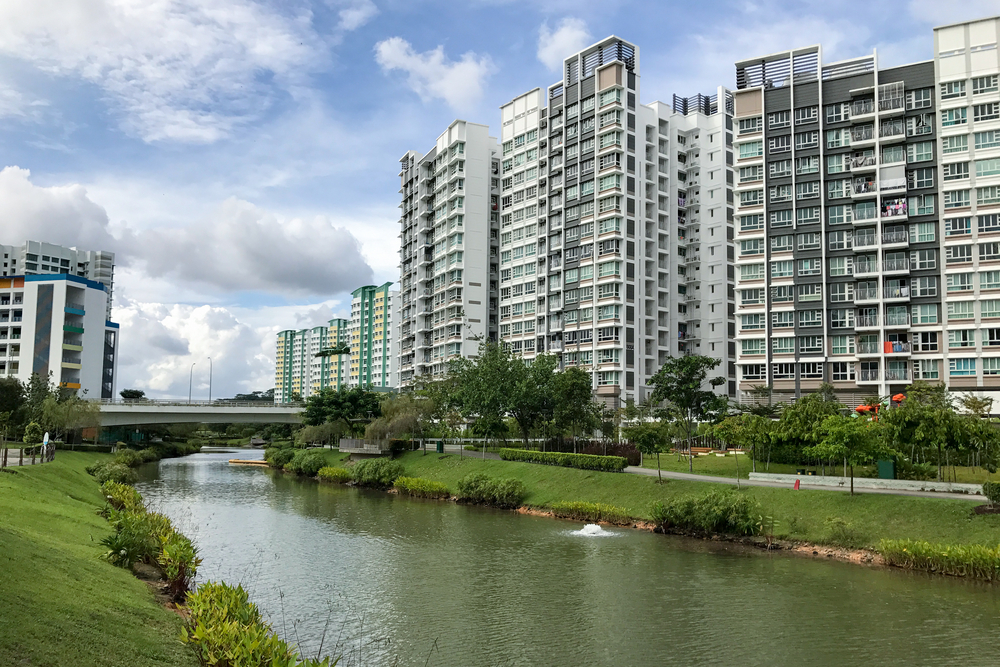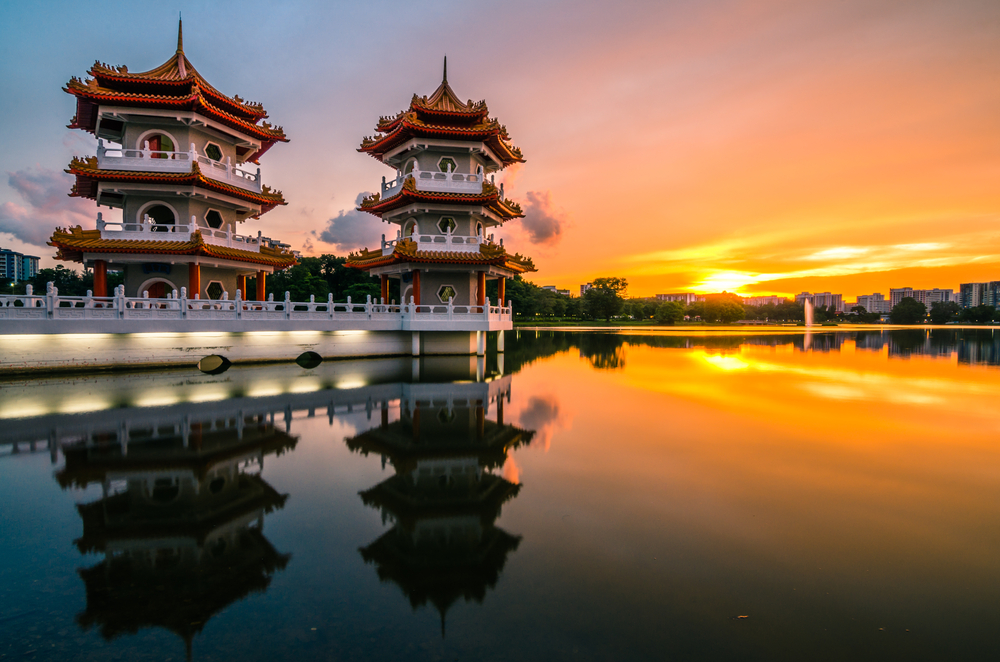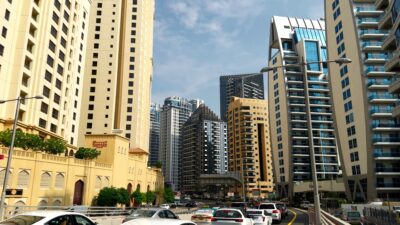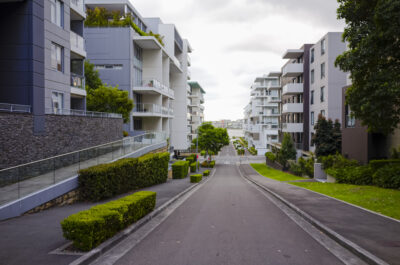Singapore embraces inclusive housing reforms amid resilient demand
Singapore’s regulatory strength continues to exert appeal for international investors while a flotilla of new housing supply spells good news for local home seekers

Balancing the aspirations of homebuyers with the broader goals of the community, Singapore seeks ways to become a haven for not only international investors but also underserved segments of its housing market.
Every minute, hundreds of tonnes of cargo pass through Singapore, Southeast Asia’s busiest seaport. It’s a poignant symbol of the country as a safe harbour, an anchor of stability in geopolitically tense times.
Singapore’s regulatory strength and sterling reputation have offered the property market a degree of insulation from external unrest, trade tensions, and economic deceleration from 2023.
Amid local inflationary pressures, elevated interest rates, and cooling measures, many homeowners saw no urgency to sell assets, and asking prices remained high despite signs of moderating growth.
Now the city-state is making its public housing system more inclusive and accessible than ever.
A flotilla of new supply, the biggest since 2017, berthed at the market last year with the completion of 21,400 Housing and Development Board (HDB) flats, the country’s public homes, in addition to 20,400 units from private developers. State land tenders or Government Land Sales (GLS) last year are expected to yield 9,250 residential units, a decade-high record for the land-scarce island nation.

“For property seekers and sellers, this likely means that we’ll have a steady supply of new homes coming to the market in the coming years, reducing the kind of fluctuations we’ve experienced, for instance, in the rental market which took off between mid-2021 and late 2023,” recalls Kristin Thorsteins, head of partnerships for growth in APAC at workspace provider IWG plc. and chairperson of the PropertyGuru Asia Property Awards (Singapore).
Property seekers found recourse in HDB’s resale marketplace during the pandemic when construction delays undermined the completion of the board’s highly desired Build-To-Order (BTO) offerings.
That demand continues, buoyed in part by private homeowners hoping to downgrade to a public flat. Around 185 resale flats were sold for at least SGD1 million in Q1 2024, breaking a record that had just been set in the previous quarter, according to flash estimates from the board.
“Larger HDB flats emerge as a value proposition, especially when compared to private homes of similar size and location, which command a substantially higher price,” says Dr Nai Jia Lee, head of real estate intelligence, data, and software solutions at proptech company PropertyGuru Group. “This trend reflects a broader market behaviour where buyers prioritise value and affordability amidst economic uncertainties.”
Still, in the spacious, suburban areas of OCR (Outside Central Region), some 1,275 new private homes were sold in Q1, the highest quarterly sales in the neighbourhood since 2021, reports real estate agency OrangeTee.
“Although the pace of sales in the private residential market has quietened from the heady days in 2021 and 2022, with homebuyers no longer showing the frenetic urgency on the back of limited options and fear of missing out, buyers are still able to identify value opportunities and acquire suitable properties for owner-occupation,” says Leonard Tay, head of research at real estate advisor Knight Frank Singapore.

Prices of private condominiums and apartments increased by one percent in the first quarter, but that is down from the 2.3 percent expansion in Q4 2023, according to flash estimates by the Urban Redevelopment Authority (URA). Those of their landed counterparts slowed down from 4.6 to 3.4 percent, too.
“While the underlying demand for private homes remains strong, there is a decline in transaction volumes in the first quarter, reflecting a more discerning buyer behaviour,” says Dr Nai Jia.
Absent tighter monetary policies, private home prices could still grow by around three to six percent this year, with HDB resale prices rising by up to five percent, OrangeTee predicts. The US Federal Reserve, which typically influences Singapore interest rates, announced in January that rates would hold steady at a range of 5.25 to 5.5 percent.
“If interest rates moderate in the upcoming months, buying sentiment may pick up in the second half of this year,” reports Christine Sun, chief researcher at OrangeTee. “As mortgages become more affordable and financial costs improve, home buyers may feel more motivated to purchase or upgrade their homes.”
In addition to downgraders, demand for HDB resale homes also stemmed from first-time buyers unwilling to wait for BTO sales launches, which now happen thrice a year instead of four. That could now change with the imminent launch of 19,600 BTO flats this year—and a tectonic shift in public housing policy.
During his National Day Rally speech in August, former Prime Minister Lee Hsien Loong revealed plans to abolish the classification of HDB estates as “mature” and “non-mature”, favouring the reclassification of BTO projects instead.
Starting H2 2024, BTO projects are classified according to Standard, Plus, and Prime tiers, the former being the cheapest and most ubiquitous and the latter being the choicest in terms of location. The framework, the prime minister says, should “maintain a good social mix in every town and every region.”

The new framework could be a boon to an oft-overlooked segment of Singaporean society: singles. The dramatic reshuffle allows singles to buy two-room flexi flats across all types of BTO projects; they were previously forbidden from buying flats in mature estates.
“More and more Singaporeans are choosing to be single,” Lee Hsien says. “Singles too hope to own their homes and have more housing choices. We hear your concerns.”
The shift towards more inclusive housing policies demonstrates Singapore’s commitment to adapt to demographic trends and the diverse needs of its population
Plans to upgrade existing HDB homes and precincts are also underway, promoting active ageing-in-place with senior-friendly fittings, infrastructures, and facilities.
Although some think the policies are lacking in some respects—singles younger than age 35 still cannot buy the flats, for example—two in five Singaporeans think the new policies would make public homes more affordable and accessible for all, according to respondents surveyed for PropertyGuru’s Singapore Consumer Sentiment Study in H1 2024.
Approximately 58 percent of respondents agree that the 10-year minimum occupation period (MOP) for Prime and Plus flats will contribute to stabilising prices.
“The shift towards more inclusive housing policies demonstrates Singapore’s commitment to adapt to demographic trends and the diverse needs of its population,” says Dr Nai Jia. “The government’s approach to carefully consider the allocation of limited resources—land and financial—while expanding housing choices for singles, underscores the complex task of urban planning in a resource-scarce environment.”
Earlier last year, Singapore made it clear that the housing market would skew local and side with low-income buyers. The buyer’s stamp duty (BSD) increased on higher-value residential and non-residential properties, followed by the imposition of a 60% additional buyer’s stamp duty (ABSD) on foreign buyers. The latter has since led to a reduction in listings in the Core Central Region (CCR).

“I hope that the long-term implication will be increased affordability and stability, but naturally that will depend on the interplay of various market forces and potential policy adjustments,” says Thorsteins, adding that high-net-worth individuals fleeing instability elsewhere still contributed to demand for luxury properties.
Subsequent speculation that this foreign capital would be diverted to commercial properties was not entirely unfounded. Singapore registered the highest volume of commercial real estate investment in Asia-Pacific by Q4 2023, reports Knight Frank.
“I think that the real reason is the underlying strength of Singapore’s commercial real estate market,” says Thorsteins. “Commercial property transactions are generally of much higher value than for residential.”
Various government initiatives, such as the Skills Framework and SkillsFuture, may further support employment and enhance business competitiveness in the city-state. The current turnaround in demand for global electronics can also mobilise Singapore’s manufacturing sector, which shrivelled by 4.3 percent in 2023 compared to 2022’s 2.7 percent gain.
Singapore’s GDP is projected to expand by up to three this year, compared to 1.1 percent in 2023. Yet even advanced economies must walk the tightrope between comparative advantage and the downside risks of a geopolitically fragmented, warming planet.
“The biggest macroeconomic risks would be heightening geopolitical tensions in the Middle East, which may raise oil prices and inflation,” says Dr Nai Jia. “This will reduce the possibility of any cuts in interest rates. Another risk is climate change that may lead to idiosyncratic price increases in the commodities.”
Sustained economic growth could support the continuity of robust property prices and further insulate the market against fluctuations. Seven in 10 Singaporeans intend to buy a property, with more than half planning to buy it within the next five years, according to PropertyGuru.
“Prices will likely grow at a slower pace, potentially even seeing periods of slight correction, but drastic declines seem unlikely,” says Thorsteins. “In any case, we can be sure of the government to step in if the market moves drastically in either direction. In Singapore, nothing is left to chance.”
This article was originally published on asiarealestatesummit.com. Write to our editors at [email protected].
Recommended
New leader, new opportunities: How Hun Manet is shaking up Cambodia’s real estate game
Hun Manet is overseeing decent economic growth and widening access to the country’s real estate market for foreigners
Singapore embraces inclusive housing reforms amid resilient demand
The Lion City’s regulatory strength continues to exert appeal for international investors
Trio of riverfront towers to crown Phnom Penh skyline
Diamond Bay Garden, a skyline-changing development in Phnom Penh, stands at the confluence of style and ambition
Big data takes over real estate: From market trends to finding dream homes
Big data is transforming the real estate industry by enabling analysis of market trends, property performance, and neighbourhood dynamics







